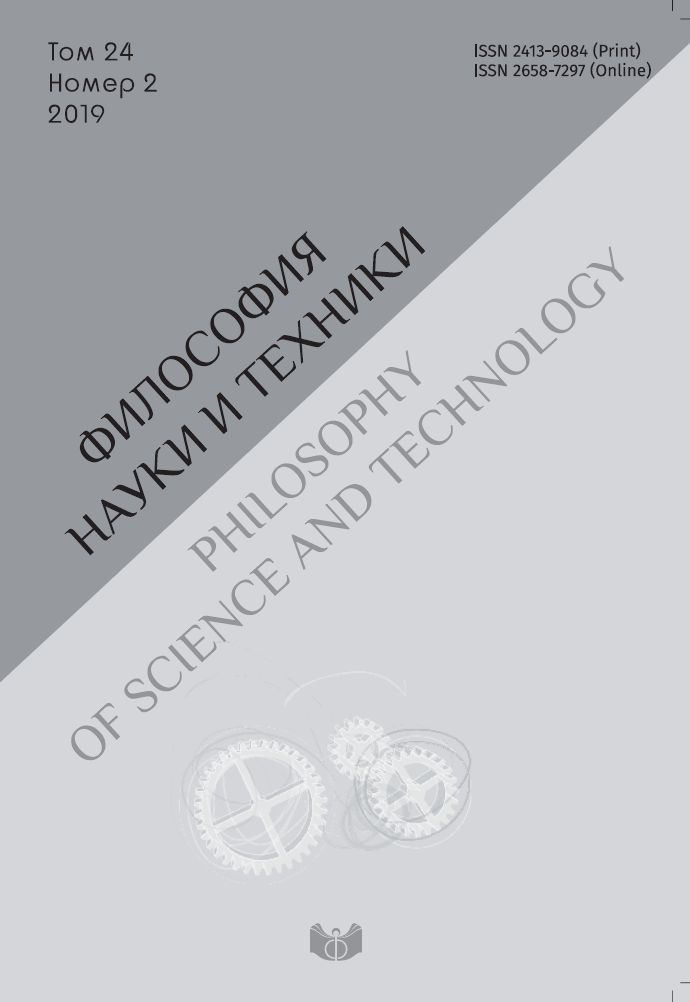Science in the context of modernity and history (ideas of a new concept)
DOI:
https://doi.org/10.21146/2413-9084-2019-24-2-53-69Keywords:
science, concept, reconstruction, ontology, history, institution, sociality, problems, solution, conceptualization, ideal objectsAbstract
The article expresses a number of ideas that represent a working version of the new concept of science. It is opposed to the known existing concepts of science, in which, in the opinion of the author, the science is not considered historically, but the natural science serves as the ideal of science. At the beginning of the article, some problems are considered whose solution is not resolved within the framework of the existing concepts of science. These are the problems of the origin of science, the characteristics of nature as the ultimate ontology of science, the convergence of the natural science and humanitarian approach. The author examines the criticism of his approach by the philosopher and methodologist V.A. Belyaev. Specifying in this regard, the understanding of science, the author argues that modern science is not only a new European phenomenon, but also a result of the historical development of science, starting with antiquity, and therefore, from the point of view of modern problems, it is more effective to consider science not only as a new European institute, but also as a “science genome”, i.e. the result of its historical development. Further, based on many years of research, the characteristics of the science genome are proposed: orientation towards knowledge and obtaining of self-consistent knowledge, problems solution, construction of the ideal objects, natural phenomena description, conceptualization of science. Then, the characteristics of science as a modern European social institution are given (in a social institution, the author distinguishes four interrelated plans – the structure, formation, institution in culture and the system of other institutions, social support for the formation and functioning of the institute). The author shows that the concept of science of the modern time included not only the rethought characteristics of the science genome, but also a new type of sociality. It was focused on mass auditoria and liberal-democratic institutions, as well as a new cultural project, which asserts nature as a new reality, lying on the other side of individual religious doctrines, promising, in the case of mastering nature, the power and well-being of man. The author claims that within the framework of science as a modern European social institution, the main modern concepts of science are also formed: K. Popper, T. Kuhn, I. Lakatos, S. Toulmin, P. Feyerabend, M. Polanyi, V. Stepin. In conclusion, the solution of the problems posed at the beginning of the article is outlined.











